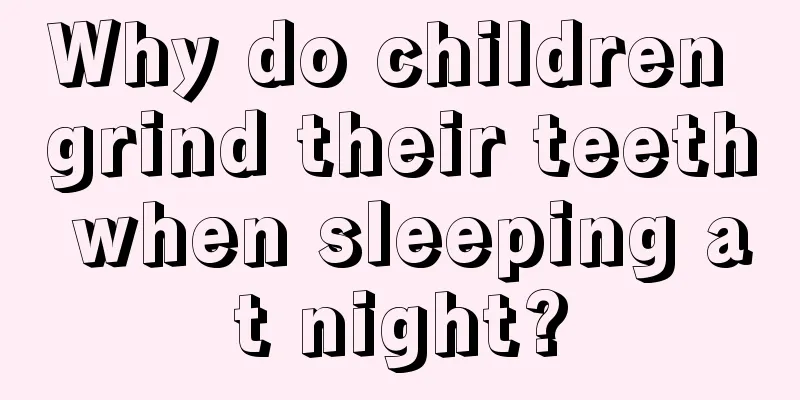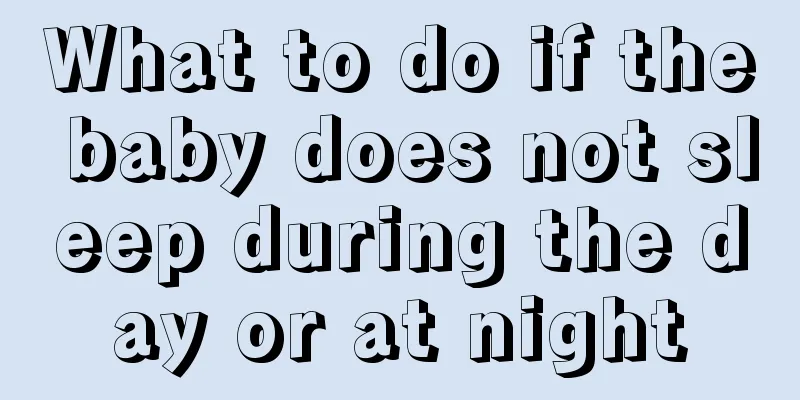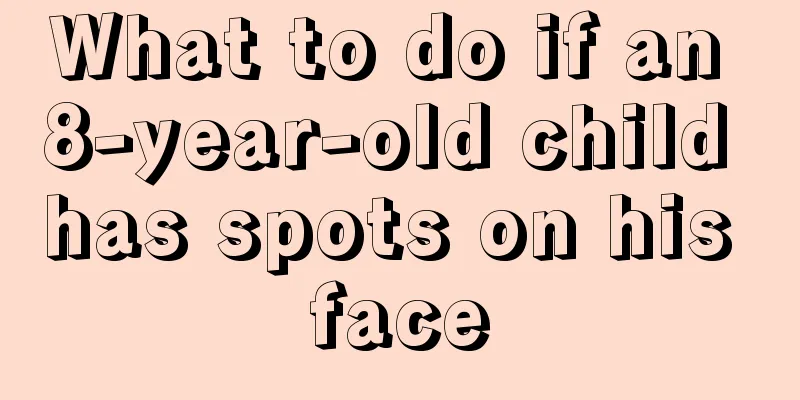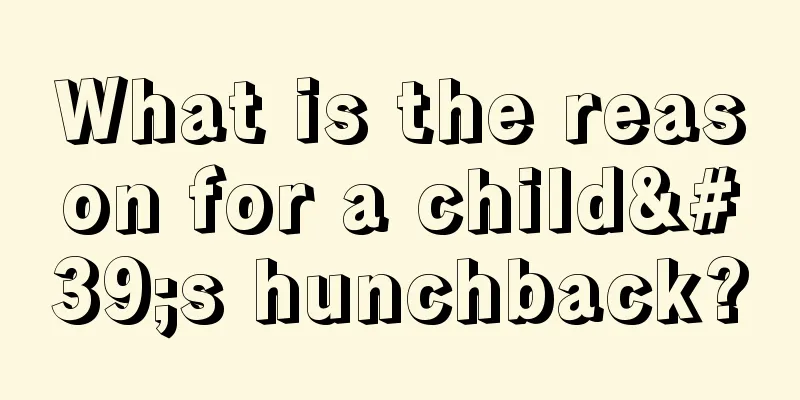What to do if your seven-month-old baby has a runny nose

|
Seven-month-old babies have begun to grow teeth, and breast milk and formula alone can no longer meet the baby's needs for hair growth and development. At the same time, the baby's resistance during this period is relatively low, so it is also very important to add complementary foods to the baby during this period. In order to reduce the symptoms of runny nose in seven-month-old babies, it is important to pay attention to the baby's balanced diet and increase the baby's nutritional needs during this period. Let's learn about what to do if a seven-month-old baby has a runny nose. A seven-month-old baby has a runny nose. 80% to 90% of colds are caused by viruses, and there are more than 200 types of viruses that can cause colds; 10% to 20% of colds are caused by bacteria. Babies under one year old are more susceptible to colds because their immune systems are not yet fully developed. The baby with a cold is feeling very uncomfortable It is common for children to catch 5 to 6 colds a year. Typical symptoms of a cold include: runny nose, blocked nose, cough, sore throat, tiredness, loss of appetite, and fever. When babies under one year old catch a cold, they often experience fever (body temperature over 38°C), cough, red eyes, sore throat, and runny nose. Babies with a cold often have a decreased appetite. Babies under 6 months old often have difficulty feeding and breathing because they cannot breathe with a completely blocked nose. Duration of the cold Generally, a cold will last for 7 to 10 days, and in babies it may last for about 2 weeks. The cough is often the last symptom to go away and it often lasts for several weeks. Babies who often play with older children usually catch 6 to 10 colds in the first year; they may even have a runny nose all winter. When to see a doctor If your baby is less than 3 months old and shows symptoms of a cold, you should take him to the doctor immediately. For older babies, you should take them to the hospital immediately if any of the following conditions occur: a cold lasts more than 5 days; a body temperature exceeds 39°C; the baby has ear pain; difficulty breathing; a persistent cough; or a runny, yellow-green, sticky nasal discharge. Treatment of colds 1. When you take your baby to the hospital, the doctor will often ask the baby to undergo some tests so that they can find out the cause of the cold. 2. If it is a viral cold, there is no specific medicine. The main thing is to take good care of the baby and alleviate the symptoms. Generally, it will be fine after 7 to 10 days. 3. If it is caused by bacteria, the doctor will often prescribe some antibiotics for the baby, and the baby must be taken on time and according to the dosage. In order to make their children recover faster, some mothers often increase the dosage of medicine on their own. This is absolutely not allowed, otherwise it will backfire. 4. If your baby has a fever, you should take antipyretics as instructed by the doctor. If the body temperature is below 38.5℃, you don't need to take antipyretics. Don't take cold medicine indiscriminately. For infants under one year old, taking cold medicine randomly often does more harm than good. 5. If the blocked nose has made it difficult for the baby to feed, you need to ask the doctor to prescribe some saline nasal drops for you. Apply the drops to the nose 15 minutes before feeding. After a while, you can use a nasal aspirator to suck out the saline and mucus in the nasal cavity. Nose drops can thin out thick mucus and make it easier to clear. Never give your child vasoconstrictor or other medicated nasal drops without your doctor's approval. Caring for a baby with a cold 1. Get enough rest For colds, good rest is crucial. Try to let your child sleep more, reduce outdoor activities appropriately, and don't let your baby get tired. Take good care of your baby's diet and let your baby drink more water. Adequate water can make the nasal secretions thinner and easier to clean. Let your baby eat more fruits and juices rich in vitamin C. It is said that chicken soup can relieve the symptoms of colds, so you might as well make some chicken soup for your baby to drink. Try to limit your intake of dairy products, which can increase mucus production. For babies with decreased appetite, mothers should prepare some easily digestible foods that are good in color, aroma and taste. 2. Let your baby sleep more comfortably If your baby has a blocked nose, you can put one or two towels under the child's mattress and slightly elevate the head to relieve the blocked nose. Never let babies under two years old sleep directly on pillows or place pillows under mattresses, as this can easily cause suffocation or damage the cervical spine. 3. Help your baby blow his nose The baby is still too young to blow his nose by himself. The best way to help the baby breathe smoothly is to help the baby blow his nose. You can apply a little Vaseline oil in the baby's external nostrils, which can often relieve nasal congestion; if the mucus is thick, you can try using a nasal aspirator or twisting medical cotton balls into small sticks to remove the mucus in the nose; if the nasal congestion has caused difficulty in feeding, you can use saline nasal drops 15 minutes before feeding. After a while, use a nasal aspirator to suck out the saline and mucus in the nasal cavity, and the baby's nose will be unobstructed. 4. Keep the air moist You can use a humidifier to increase the humidity in your baby's room, especially at night, to help your baby breathe more easily. Don't forget to clean the humidifier every day with white vinegar and water to prevent the accumulation of dust and germs. 5. Give your baby a steam bath Take your baby to the bathroom with you, turn on the hot water or shower, close the door, and let your baby stay in the steam-filled house for 15 minutes. Your baby's nasal congestion will definitely improve greatly. Don't forget to change your baby into dry clothes immediately after bathing. If you let your baby play in slightly warm water for a while, it can also relieve symptoms of nasal congestion and lower body temperature. Special Tips If your baby has no symptoms other than nasal congestion, you need to take your baby to an ENT specialist for a nasal examination. You may not know this: Even very young babies can put objects into their nasal cavity. When the baby has any problem, parents will be particularly nervous and cautious, especially when the baby has a runny nose at seven months old, parents always don’t know how to take care of the baby. In fact, it is quite common for babies to have a runny nose. It is necessary to find out the cause and add or remove clothes for the baby according to the environment. Don’t always dress the baby too much. Also, take the baby outdoors more often to breathe fresh air. |
<<: Why does a baby sneeze and have a runny nose?
>>: What causes a child to sneeze and have a runny nose?
Recommend
How should babies eat walnuts?
Many people are asking whether babies can eat wal...
Is it good for children to eat pine nuts?
Pine nuts are a type of food that is rich in nutr...
Why do children have constipation and dry stools?
Many parents find that their baby's stool is ...
How to solve the problem of children having phlegm in their throat when sleeping?
If children have phlegm in their throats, they ge...
What should I do if my 1-year-old baby suddenly has a fever?
Some babies' bodies are very fragile. Once a ...
What to do if your child has leg cramps
I believe everyone is familiar with symptoms such...
What medicine is effective for children with urticaria
Everyone should be familiar with the skin disease...
My baby has a lot of red bumps on his body, what's going on?
After having a baby, the mother's energy is a...
What are the symptoms of insufficient sleep time for primary school students?
Insufficient sleep time for primary school studen...
The child fell and got a bump on the back of his head. Should I apply cold or hot compress?
We all know that children are prone to falling wh...
Why do babies get diarrhea after eating fish and what should they eat to relieve it?
Some mothers will come to ask, saying that they w...
What to do if a child coughs in the morning
Many parents must have encountered situations whe...
Common ways to deal with a nine-month-old baby having a fever of 38 degrees
The health of the baby is of great concern to eve...
How to treat breast development in boys
Breast development occurs in many boys. Unlike in...
What should I do if my child’s throat is always inflamed?
In fact, upper respiratory tract infection or pha...









